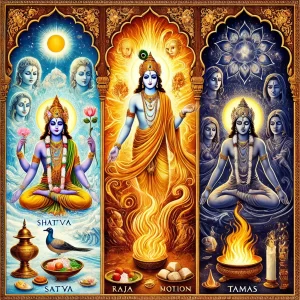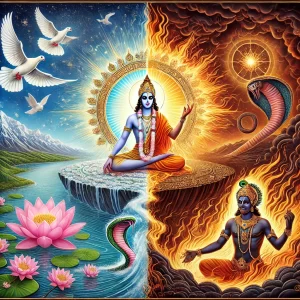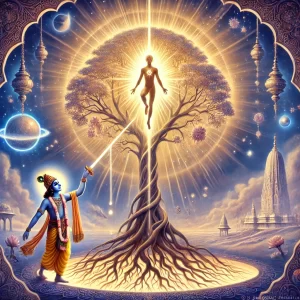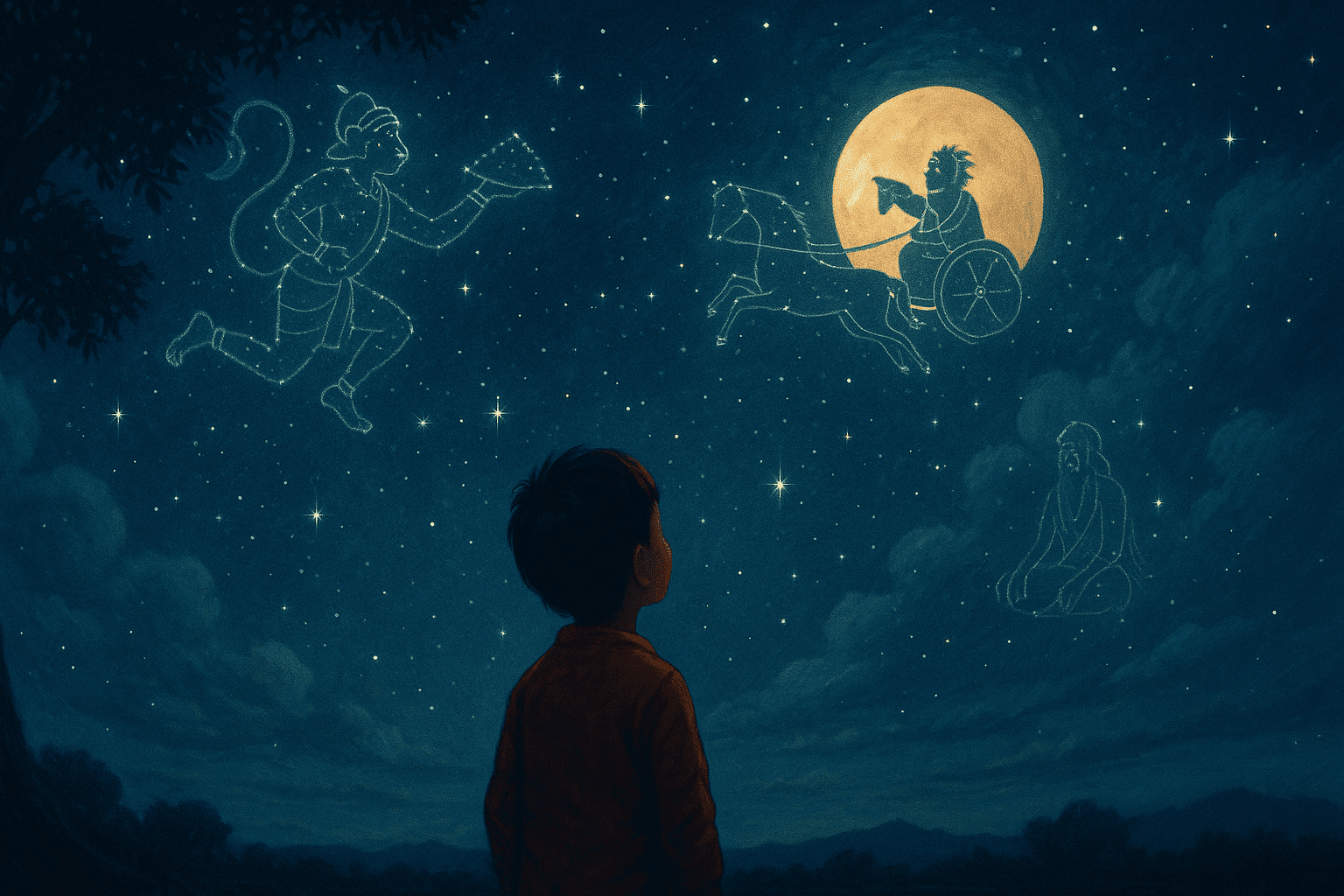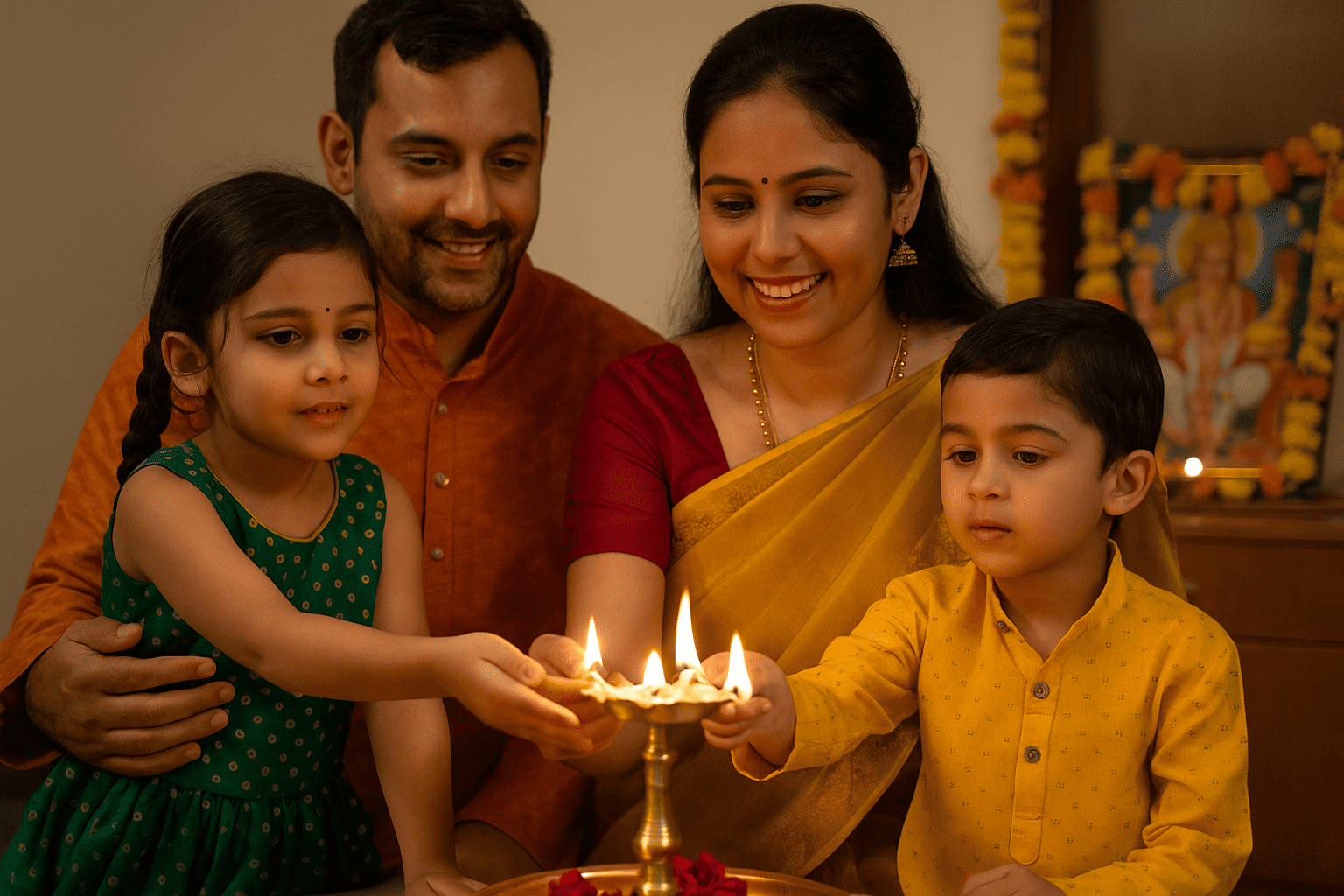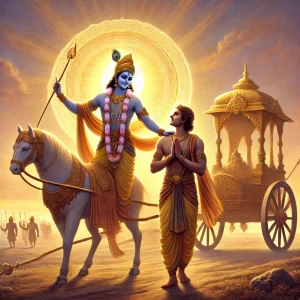
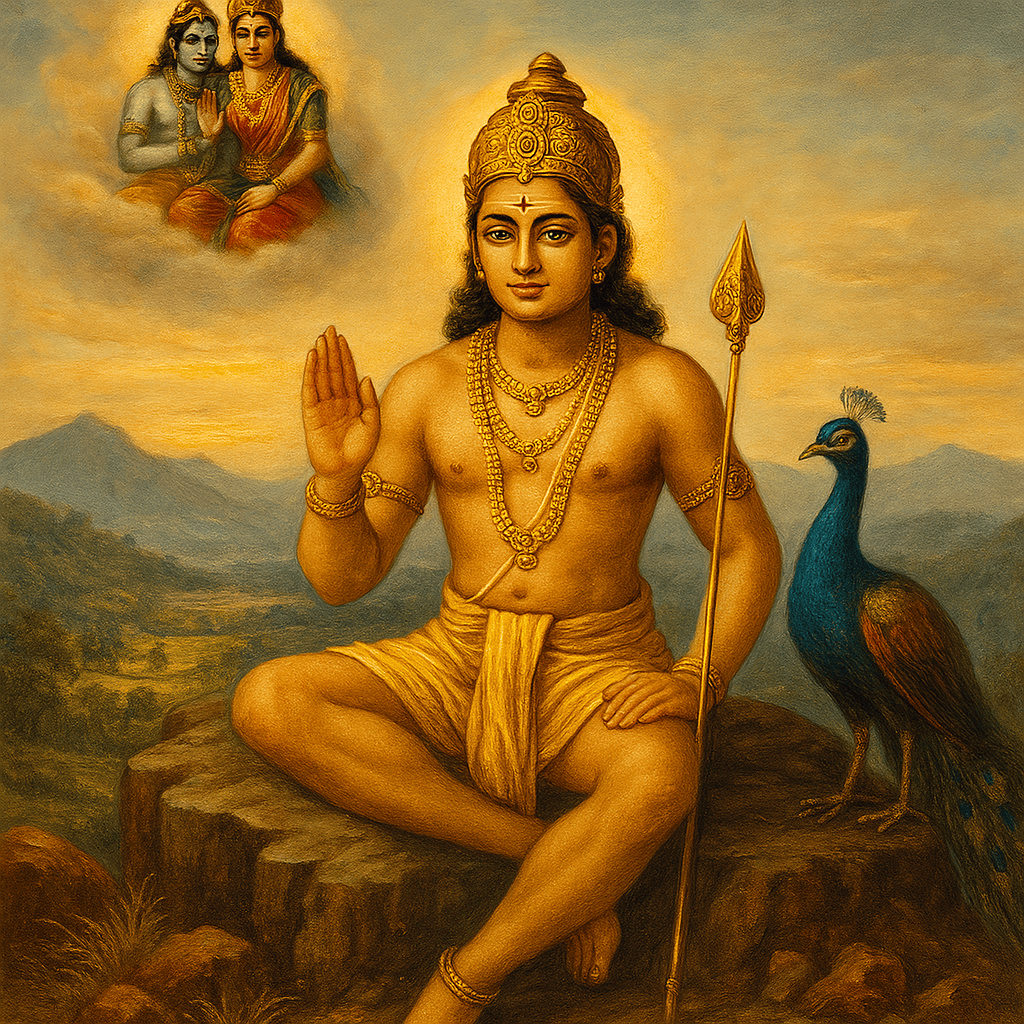
Amidst the golden peaks of the divine Himalayas, the abode of Shiva and Parvati shimmered in stillness. In this celestial sanctuary lived two sons—Ganesha, the calm, wise guardian of beginnings, and Murugan, the radiant warrior of the gods. While both were beloved and divine in their own right, each bore a different energy: Ganesha with his peaceful poise, Murugan with his fiery valor.
One day, the celestial sage Narada, known for sparking divine lessons through mischief, arrived in Kailash bearing a mystical fruit. It was no ordinary fruit—it was the fruit of supreme wisdom and eternal knowledge, and it could not be divided. It had to be earned, whole and undivided.
Shiva and Parvati, amused and curious, declared:
“Let this fruit go to the one who circles the world three times and returns first.”
Murugan’s eyes lit up with determination. With youthful energy and pride, he immediately mounted his majestic peacock and soared across the cosmos—through the planets, across mountains and oceans, passing sages, cities, and forests, all in pursuit of victory. He was the god of speed and conquest, and there was no doubt in his mind that he would return first.
But Ganesha, quiet and deeply thoughtful, sat for a moment in reflection. He then calmly stood, walked three full circles around his parents, and bowed with folded hands.
Shiva smiled.
Parvati’s eyes softened with joy.
“Why circle the world,” Ganesha said, “when you, my parents, are the world itself—the origin, the journey, and the destination?”
Shiva and Parvati, moved by this insight, awarded the fruit to Ganesha.
When Murugan returned—breathless, proud, expecting the prize—he was stunned to find the fruit already gone. It was not the loss that hurt him, but the reason. His immense effort, speed, and commitment had been surpassed not by action, but by wisdom.
He felt misunderstood. Unseen.
Anger surged first, but beneath it was a deeper pain—a pain only the heart knows when it seeks approval and finds silence. Though his parents tried to explain, he turned away. He placed his divine Vel (spear) on the ground, removed his ornaments, and made a vow:
“I need no prize. I need no palace. I will leave the heavens and go to the earth. There I will find truth—not through reward, but through renunciation.”
Thus, the god of battle became the god of solitude.
Murugan descended to the verdant hills of Tamilakam and found himself drawn to a lone hill cloaked in mist, standing in quiet dignity. It was Palani, nestled above the town now named for it. He climbed its stone paths barefoot, carrying nothing, asking for nothing.
At the summit, he made it his home.
No celestial chariots. No divine entourage. Only the soft whisper of the wind, the songs of birds, and the murmur of his own heart.
He dressed simply in a loincloth, smeared his body with ash, and lived as a yogi. He no longer wielded his Vel in combat but held it beside him in meditation. From the divine commander of Devas, he became Dandayudhapani—the staff-bearing ascetic, the one who had renounced all but still carried boundless inner power.
There, he sat. Days passed into seasons. Murugan, the fiery youth, became a silent sage. Through quiet reflection, he came to a realization that would define his being:
True wisdom is not a fruit to be granted, but a state of being to be realized.
True renunciation is not walking away from the world, but walking into the Self.
Back in Kailash, Parvati’s heart ached. She knew her son was not angry anymore—but she also knew he had chosen a path of solitude that many gods would never dare to take.
She and Shiva descended to Palani, disguised as humble travelers, and stood before their son. At first, he did not look up. But then, something stirred in the silence. He saw not gods, but his mother and father. The bond was not broken—it had only deepened.
They embraced him. No words were needed.
Parvati smiled and whispered:
“You are the true fruit, my son.”
“Pazham Nee.”
And so the hill became Palani, named after that moment of realization and reunion.
Today, the Palani Murugan Temple stands as one of the most powerful spiritual centers in India. Pilgrims climb its 693 steps, many in silence, some with vows, some barefoot. At the summit, they do not find a grand warrior adorned in jewels, but a simple, ash-covered boy, serene and still, gazing into eternity.
He is the Murugan who no longer seeks prizes, for he has become the prize himself—the deity of self-realization, of inner strength, and of renunciation not through rejection, but through wisdom.
In this sixth abode of the soul, Murugan teaches that letting go is not losing—it is rising.

